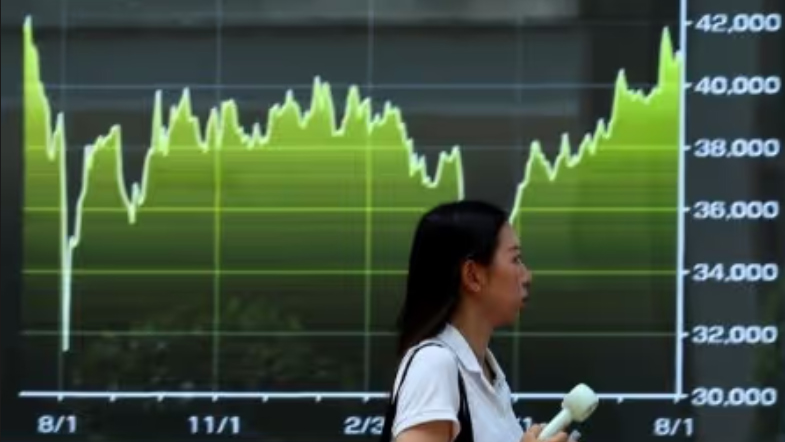TOKYO — Japan’s Nikkei share average will likely ease off recent record highs toward year-end, according to strategists in a Reuters poll, though much depends on a fragile trade agreement with the United States.
Japan’s benchmark stocks index last week surpassed its previous intraday record, and traded as high as 43,876.42 this week.
The index is up more than 9 percent so far this year, but is forecast to slip back to 42,000 at the end of December, according to the median estimate of 18 analysts polled August 8-18.
The Nikkei joined global equity bourses in a steep dive in April after US President Donald Trump announced sweeping tariffs on imports. As Trump backed down on deadlines and his administration worked out bilateral trade deals, many benchmarks recovered.
Japanese equities jumped around 11 percent after the US agreed last month to reduce tariffs on Japanese auto imports to 15 percent from 27.5 percent, though a timeframe for the change and other details remain nebulous.
“The 15 percent tariff is relatively low compared to the one on China, so Japanese companies may be able to gain a competitive advantage,” said Masayuki Kubota, chief strategist at Rakuten Securities. “However, there is growing uncertainty about whether President Trump will actually uphold this agreement.”
Japan’s economy remains largely reliant on exports. Data last week showed that the country’s gross domestic product, the fourth biggest globally, grew much faster than expected in the second quarter.





